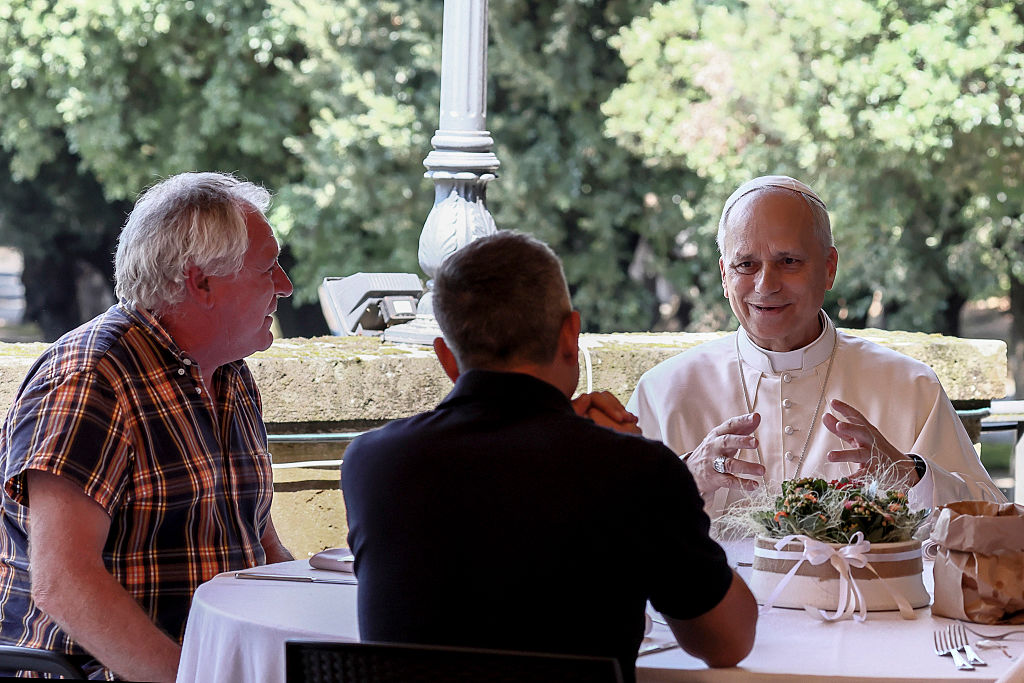Pope Leo XIV ended his summer retreat in a way that few world or religious leaders would — by celebrating Mass with the poor and then sharing lasagna, roast veal and a homemade dessert called “Dolce Leone” with more than a hundred homeless people, refugees and Caritas volunteers.
The Sunday gathering at Borgo Laudato Si’, the Vatican’s environmental center outside Rome, marked the close of his Castel Gandolfo retreat. Guests included a Peruvian refugee family and an elderly Roman woman, symbols of the diverse realities of poverty and displacement.
In his homily, the pope praised “the fire of charity” that sustains both giver and receiver. His actions added weight to his words: instead of delivering a speech from afar, he sat side by side with those society often ignores.
The moment stood out in part because of its contrast with many political figures who invoke Christianity while showing little interest in extending dignity to the unhoused. U.S. governors and mayors in recent years have pushed measures criminalizing homelessness, from bans on camping in public spaces to restrictions on food distribution. Some self-identified Christian leaders have even refused to meet with or provide services to migrants and the poor, citing “personal responsibility” or budgetary concerns.
By comparison, Pope Leo’s lunch offered a simple but pointed reminder: compassion doesn’t require policy machinery, only the willingness to sit down at the same table. It echoed the approach of his predecessor, Francis, who opened Vatican buildings as shelters and quietly dined with marginalized groups.
For Caritas volunteers, the gesture reinforced their mission. “It shows us that what we do every day is recognized, that we are not alone,” one volunteer said. For those present at the table, the message was even clearer — dignity is not granted by wealth or power but affirmed through community.
Whether the lunch becomes a footnote in papal history or a touchstone for others will depend on how religious and political leaders respond. But the scene underscored a question as old as the faith itself: is Christianity a creed to be spoken, or a practice to be lived?


